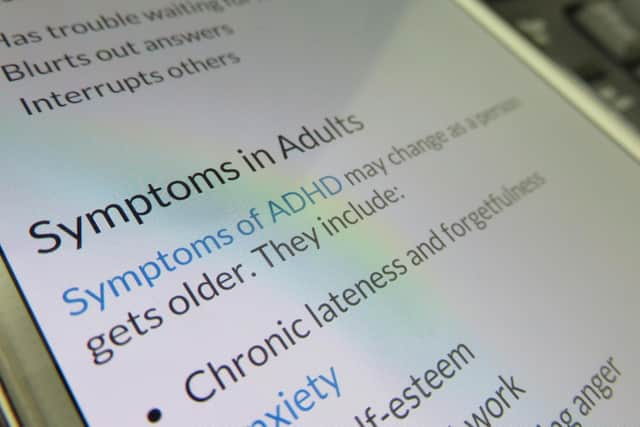Love Island’s Jacques behaviour linked to ADHD, says family: What is ADHD? How does it affect people?
The family of Jacques O’Neill pleaded to Love Island fans to “be kind” during the controversy of his row with Paige Thorne.
Many labelled his behaviour “rude and disrespectful” while his family attributed it to ADHD and struggling with his emotions.
Advertisement
Hide AdAdvertisement
Hide AdHow can we better understand what ADHD is and what it can mean for those who have it?
!["Be kind" says the parents of Love Island star Jacques O'neill, whose controversial behaviour is due to his ADHD according to his family. [Photograph (C) ITV Plc]](https://www.scotsman.com/webimg/b25lY21zOjc0YjNjM2EwLTNiZmEtNDE4Ni04YmY0LTE2OTRjMDkzZTM2YjpiZDBkYzJjNy0wNWZjLTRhMzAtOWU5OC01NWIyY2Y1MzRmZTQ=.jpg?crop=3:2,smart&width=640&quality=65)
!["Be kind" says the parents of Love Island star Jacques O'neill, whose controversial behaviour is due to his ADHD according to his family. [Photograph (C) ITV Plc]](/img/placeholder.png)
What is ADHD?
Attention-deficit/hyperactivity disorder (ADHD) is one of the most common mental disorders among children.
Usually, it is first diagnosed in childhood - often but not exclusively in young boys - and it lasts into adulthood.
A person with ADHD has differences in brain activity and development that can affect their behaviour.


Currently, the exact cause of the chemical imbalance that results in ADHD is unknown, but environmental factors like toxin poisoning or genetic factors like inheriting a predisposition for it are commonly cited.
What are the symptoms of ADHD?
Common symptoms of ADHD include hyperactivity (excess movement that is not required in the moment), inattention (an inability to maintain focus) and impulsivity (sudden behaviour or outbursts that occur without thought).
These are three of the main symptoms of ADHD.
Adults experiencing ADHD often struggle to focus and prioritise, which can lead to forgotten social plans or missing deadlines.
Also, due to their inability to control impulses, their behaviour can range from impatient to mood swings and angry outbursts.
How does ADHD affect someone who has it?
Advertisement
Hide AdAdvertisement
Hide AdADHD is classed as a “debilitating disorder” that impacts individuals in many aspects of life including their interpersonal relationships, daily functioning, and professional achievements.
In short, ADHD can indeed make life difficult for those with the condition.
It has been linked to other issues like substance abuse, unstable relationships, poor self-image, poor work performance, and in certain cases suicidal tendencies.
Those with ADHD often develop other coexisting conditions, including depression, anxiety disorders, and learning difficulties.
This can make it challenging for someone with ADHD to have a positive self-esteem or high quality of life.
Is ADHD a manageable condition?
In short, it absolutely can be, experts say ADHD is a “highly manageable condition.”
When taught adaptive techniques to improve self-organisation and time management, people with ADHD can improve their concentration and ability to manage their own behaviour.
This is why we have seen so many successful celebrities like athletes and performers hit the pinnacle of their fields even with ADHD.
Advertisement
Hide AdAdvertisement
Hide AdIn summary, when connected to the proper resources ADHD needn’t put a person at a disadvantage in life.
If you believe you or someone you know is experiencing ADHD then please check the NHS website for information on diagnosis and support.
